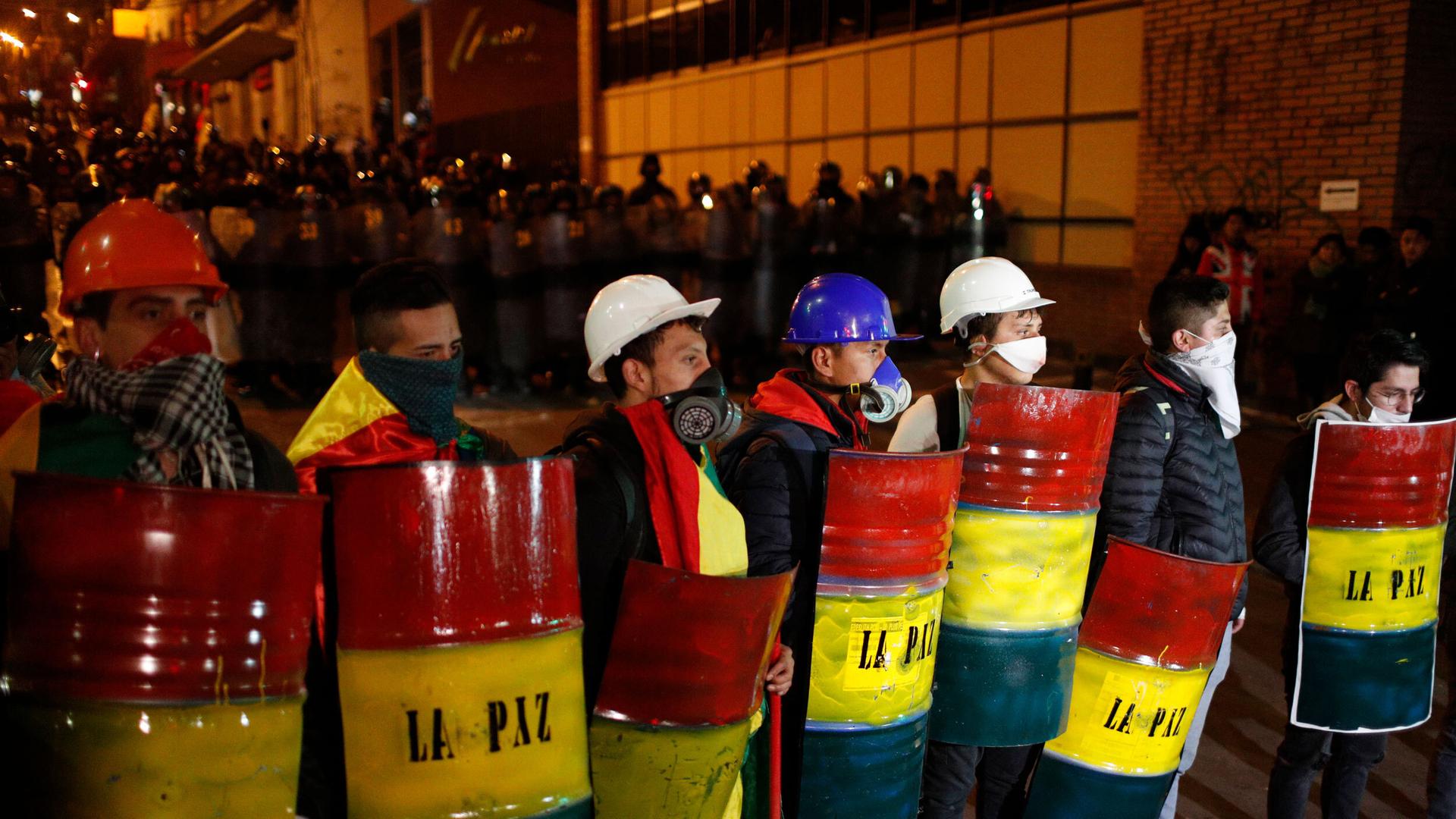The mayor of Vinto, a city nestled in the heart of Bolivia’s agricultural country, jokes her job is a lot like running a public complaints office: People call her when the garbage doesn’t get picked up or when their power or water utilities are interrupted.
And in the six months since the coronavirus reached Vinto, Patricia Arce has also helped the local hospital procure supplies and delivered grocery baskets to families going without food because of the economic impact of isolation measures, she said.
But she’s been doing her job under a cloak of fear since early November when an anti-government mob accused her of having organized a pro-government demonstration in which one person was killed. The mob pushed her through the streets of Vinto, forcibly cut her hair, doused her in red paint and demanded her resignation. Grisly videos of the attack went viral in Bolivia. In one video, a man asks her, “What have you done?” She replies, defiantly, “The only thing I’ve done is work for my people.”
Arce, still defiant, wouldn’t step down from her position. She returned to work soon after the attack.
“Quitting would be a betrayal.”
“Quitting would be a betrayal,” she told The World in a recent interview.
The city of Vinto, like much of Bolivia, has been in a political crisis since former President Evo Morales fled the country in November, shortly after he apparently won a fourth reelection in a controversial and contested vote. Arce, who has been mayor since 2015, is a member of Morales’ Movement for Socialism party and was caught in a clash resulting from the elections.
Related: Is Evo Morales leading Bolivia toward dictatorship?
The Áñez administration has harassed her, accused her of kidnapping herself, and charged her with sedition, according to a report out this week by Harvard University law school’s international human rights clinic and the nonprofit University Network for Human Rights.
Arce’s case is among the dozens of human rights violations that have been perpetrated under the government of interim President Jeanine Áñez, the report says.
In more than 200 interviews over roughly six months, researchers found Áñez’s government perpetrated violence against protesters, denied access to justice, prosecuted dissenters, and allowed civilian and para-state violence, according to the report, which is titled, “Black November & Bolivia’s Interim Government.” At least 35 civilians — many of them Morales supporters — were killed in confrontations with the military in November.
Related:Bolivia sees backlash against conservative leader
Thomas Becker, an instructor at Harvard’s international human rights clinic and a co-author of the report, was working in the central city of Sacaba on Nov. 15 when government security forces killed nine people, he said. That day, he began measuring the trajectory of the bullets in the confrontation, and concluded they had all originated on a bridge from where the military was stationed, he said.
“What happened is horrific,” Becker said.
Protests in Bolivia have led to transitions of power since at least 1982, said Carwil Bjork-James, a professor of anthropology at Vanderbilt University who has documented social movements across the Andean region. Typically, a transitional government has taken a neutral position until an election is held. But Áñez’s administration has broken with that tradition, enacting policies more extreme than what has been proposed by any of her political opponents, Bjork-James said.
Áñez’s administration has ordered dozens of investigations of local government officials and social leaders, accusing them of subverting the constitution in attempts to overthrow her government, a crime referred to as sedition.
“It’s ironic to have a transitional government that came into power after three weeks of protests to turn around and use sedition as one of the major crimes for which it arrests people,” Bjork-James said.
Election officials have postponed the presidential vote three times, most recently to Oct. 18, citing a rise in cases of the coronavirus. Many argue Áñez’s administration is taking advantage of the pandemic to extend its hold on power, and thousands are protesting the voting delay. Authorities have not given any indication about how they would conduct elections during the pandemic.
Arce, the Vinto mayor, says she asks herself how Bolivia wound up in its current crisis.
“We’ve fought too hard for our rights to lose them this way,” she said.
Our coverage reaches millions each week, but only a small fraction of listeners contribute to sustain our program. We still need 224 more people to donate $100 or $10/monthly to unlock our $67,000 match. Will you help us get there today?
